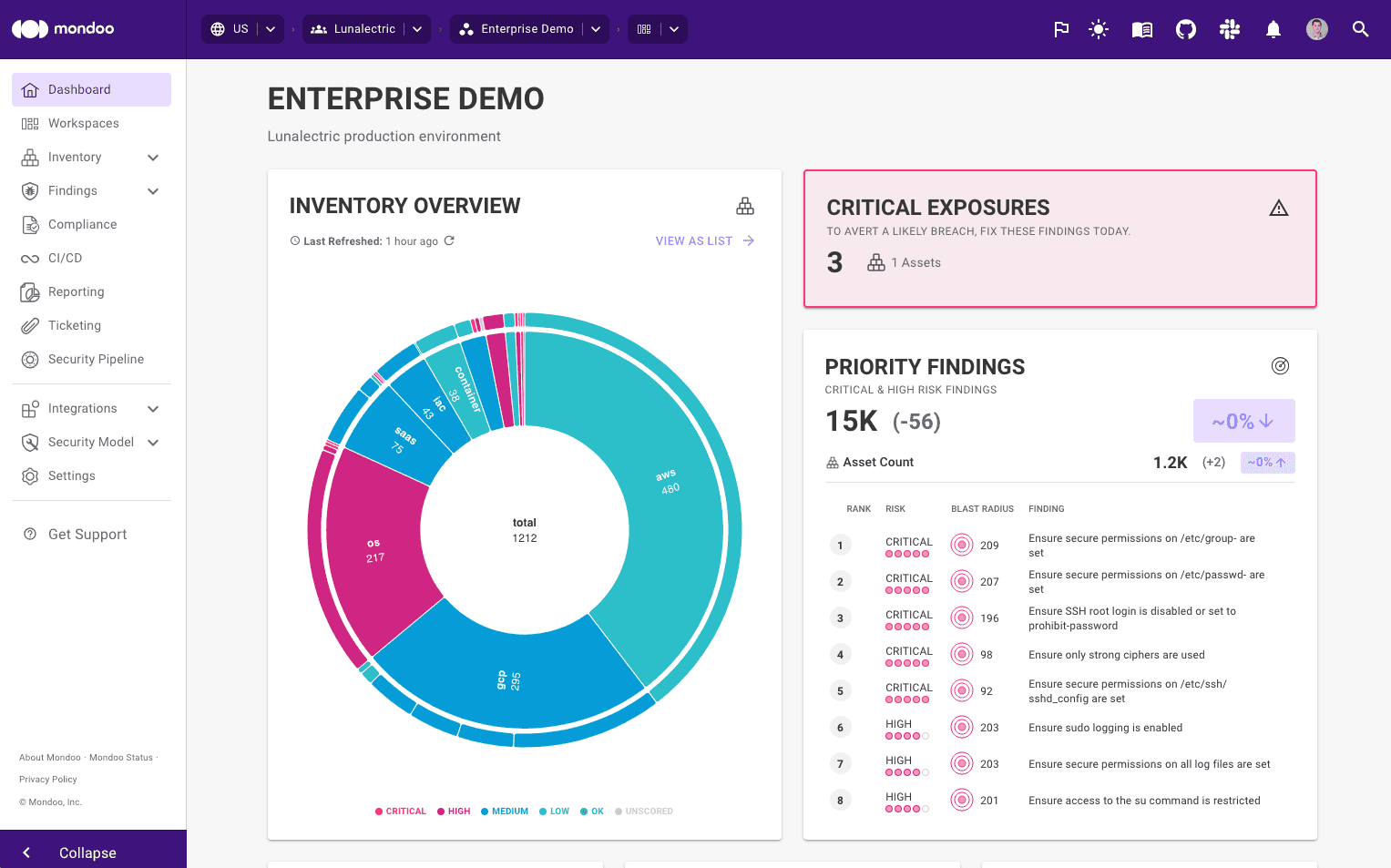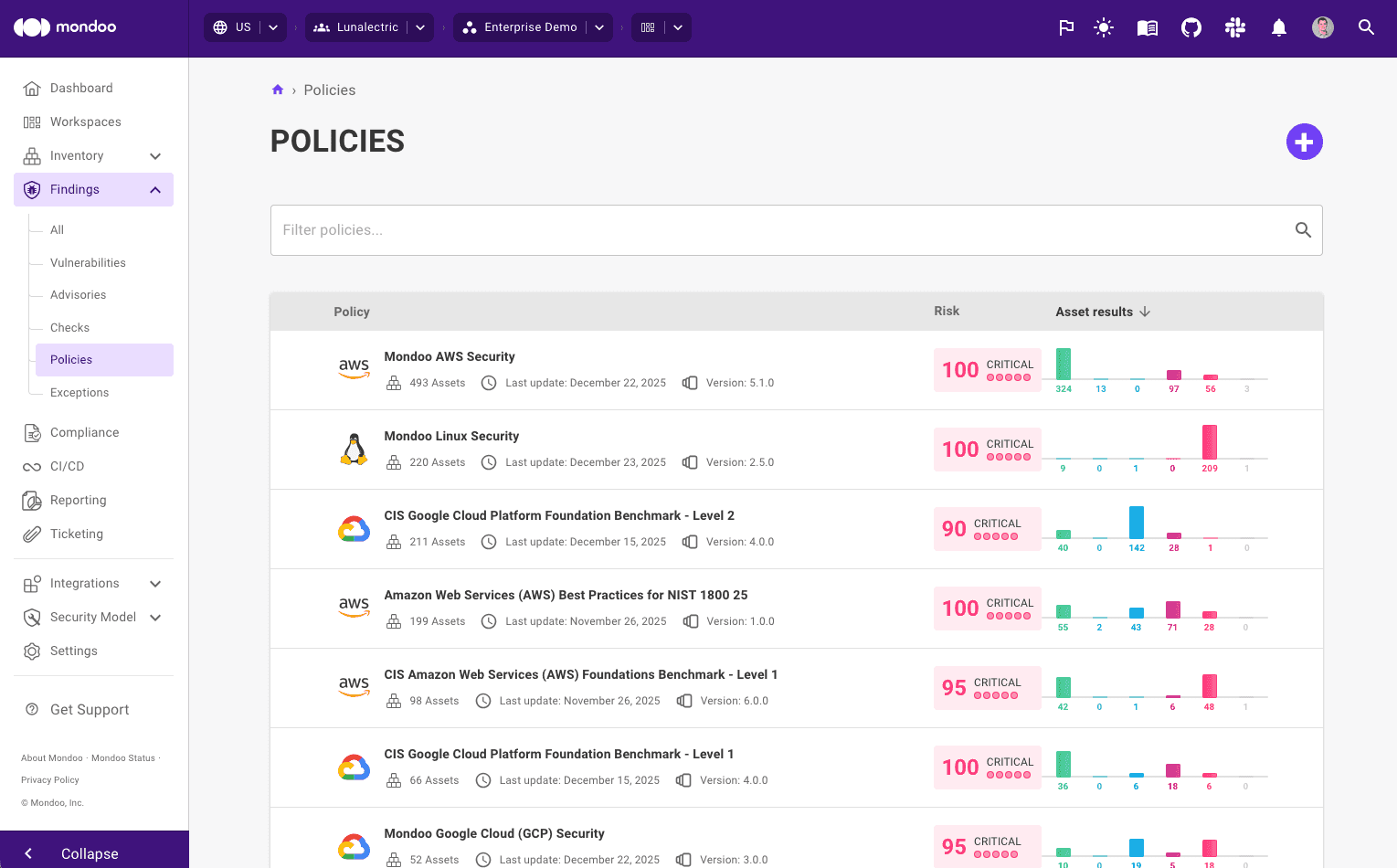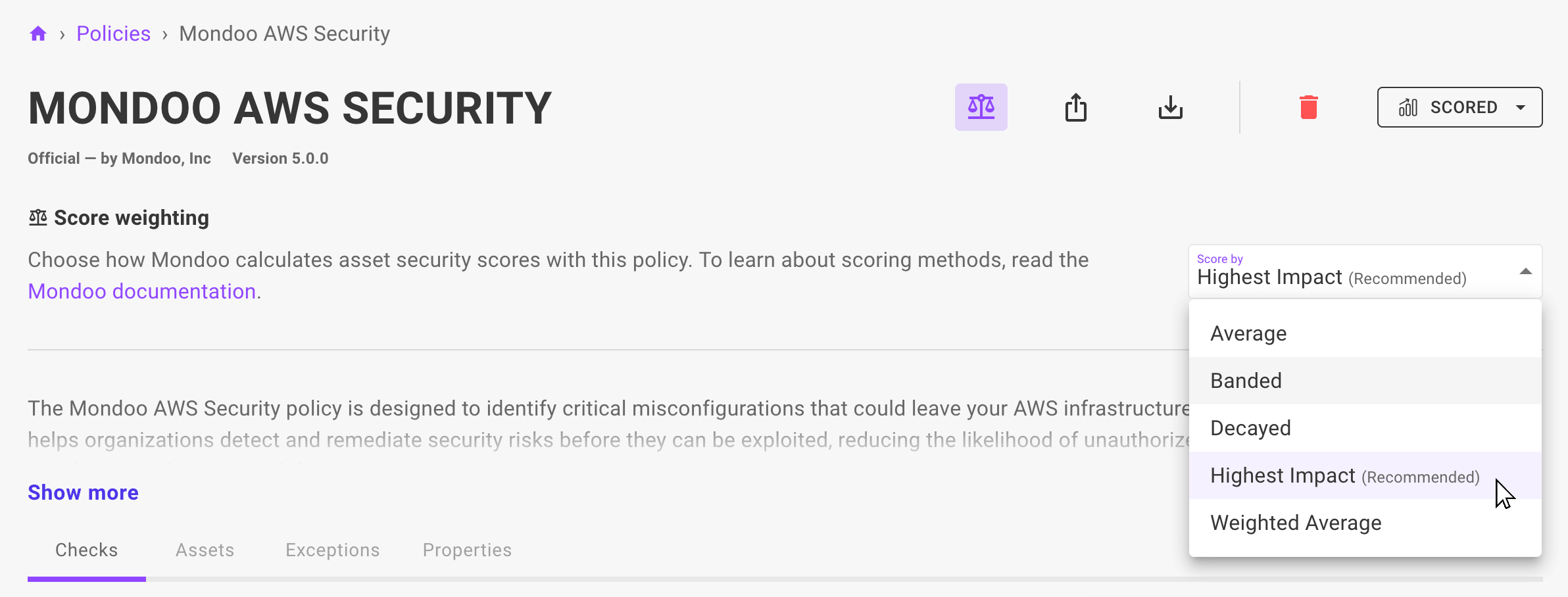Change a Policy's Scoring System within a Space
Change the scoring system Mondoo uses to evaluate assets against a policy
Each asset that Mondoo scans receives a risk score that summarizes what percentage of the policy's checks the asset fails, weighted by each check's impact. Risk scores are based on numeric scores between 0 and 100. These are the ranges for Mondoo risk scores:
| From... | To... | Risk score | Description |
|---|---|---|---|
| 90 | 100 | CRITICAL | Presents extreme risk to your organization |
| 70 | 89 | HIGH | Presents significant risk to your organization |
| 40 | 69 | MEDIUM | Presents moderate risk to your organization |
| 1 | 39 | LOW | Presents little risk to your organization |
| 0 | 0 | NONE | Presents no risk to your organization |
You can control how Mondoo calculates an asset's score on a policy.
Check impact
An asset's score on a policy is based on the number of checks in the policy that an asset passes and the number that it fails. However, not every check is equal in importance. Every check in a policy has an impact value in one of these four bands:
-
Critical
-
High
-
Medium
-
Low
In Mondoo policies, the impact of a check represents the increased vulnerability of an asset that fails the check. For example, the AWS policy check "Ensure Redshift clusters are not publicly accessible" is a critical-impact check because a publicly-accessible cluster is a potential entry point for attack. But "Ensure IAM groups are utilized by assigning at least one user" is a low-impact check because empty IAM groups don't greatly increase an asset's vulnerability.
All Mondoo scoring systems consider check impact when calculating an asset's score.
Scoring systems
Mondoo has these scoring systems:
-
Banded strategically uses impact bands to accurately evaluate an asset's security. In this system, the score quickly goes down as the number of critical-impact failures increases. It takes into account other scoring failures (like high and medium), and guarantees a minimum score when an asset has no critical or high failures. For these reasons, Mondoo recommends the banded scoring system to most of our customers.
-
Decayed scores assets on a curve. As checks fail, this system decreases the score of the asset at a rate proportional to its current value. The decayed scoring system quickly reduces scores as critical findings are added, and doesn't sink scores to zero too quickly as more checks fail. Mondoo recommends decayed scoring to more risk-averse customers.
-
Highest impact only considers the highest-impact check in the policy. If any check with the highest impact value fails, the asset's risk score is Critical.
-
Average simply scores an asset based on the number of passed and failed checks, weighted by each check's impact. This system can give high scores even when multiple critical-impact checks fail. It presents an optimistic view, but doesn't always reflect changes when you fix important issues on an asset.
-
Weighted average is just like the average scoring system except that it also considers another factor when calculating an asset's score: the weight assigned to a check. This scoring system gives checks with higher weight greater influence over an asset's total score than checks with lower weight.

To learn details about how Mondoo's scoring systems work, read the Policy Authoring Guide | Score Policies.
Change a policy's scoring system within a space
Every policy has a default scoring system. The default scoring system is encoded in the policy. However, you can change which scoring system Mondoo uses for a policy within a space.
For example, suppose an Azure policy uses the highest impact scoring system by default, and you find that this system doesn't reflect the improvements you make to the security of assets in your Cloud Operations space. You can change the way that Mondoo scores assets in your Cloud Operations space against that Azure policy: Choose the banded policy scoring instead. Your change doesn't affect the policy's scoring system in other spaces.
To change a policy's scoring system within a space:
Note: Only team members with Editor or Owner access can perform this task.
-
In the Mondoo Console, navigate to the space in which you want to change a policy's scoring system.

-
In the side navigation bar, under Findings, select Policies.

-
Select the policy you want to customize.

-
At the top of the page, select the scales icon.
The Score weighting control displays.

-
In the Score by drop-down list, select the scoring method to use for the policy in the current space.
Change Check Properties
Change the values Mondoo uses to assess your infrastructure
Customize Risk Factors
Mondoo considers multiple contextual risk factors when evaluating the security of your assets. To customize per your business's security priorities, you can choose which contextual risk factors affect your assets' scores. You can also choose tags, labels, and annotations that affect risk scores.